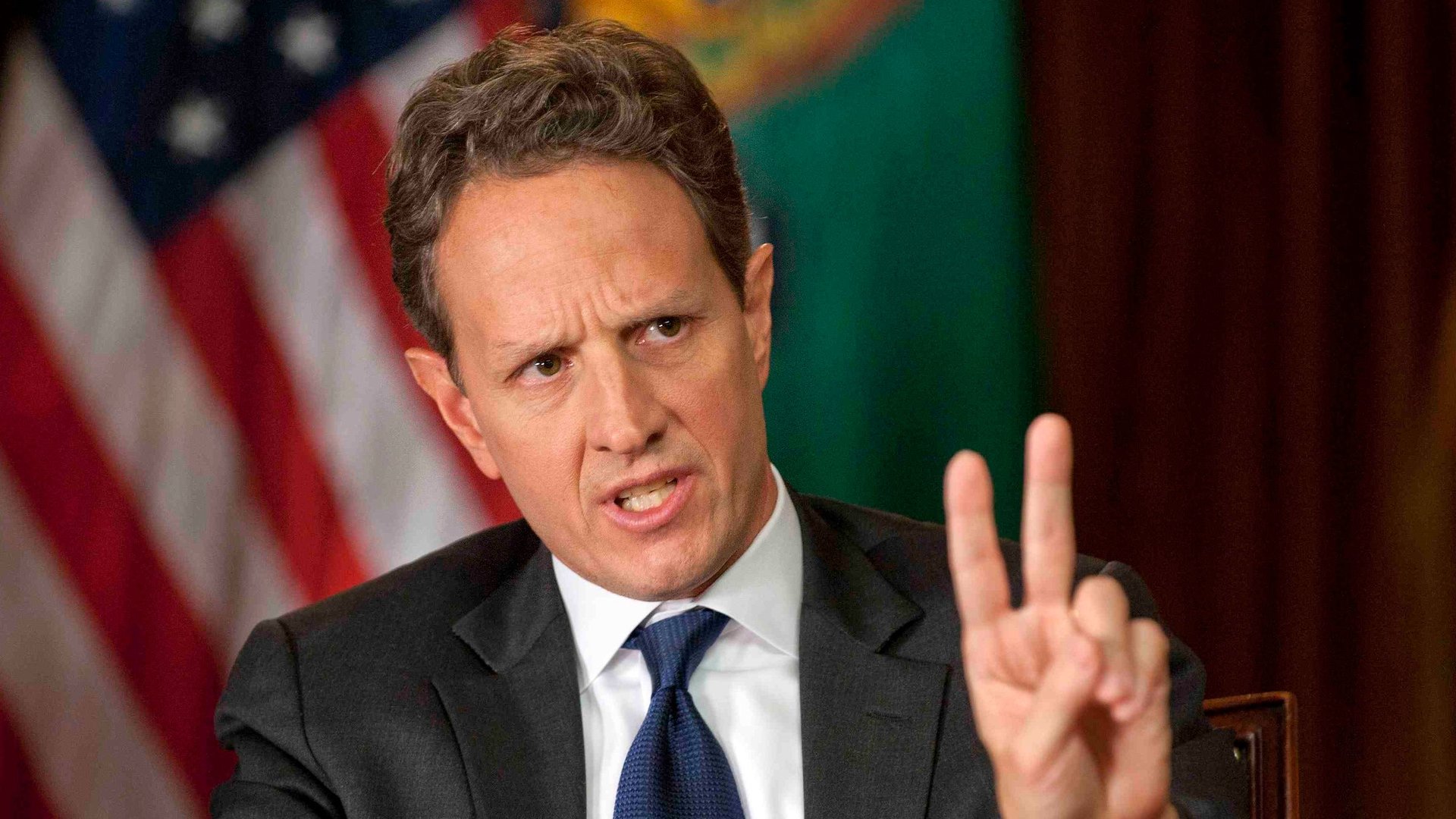When will the US actually hit its debt ceiling?
Perhaps the least talked-about piece of the “fiscal cliff”—the austerity measures that will hit the United States in the beginning of 2013—is now coming into focus: a new debate about raising the country’s debt ceiling. Congress allows the Treasury to borrow up to a certain point, but given the government’s not-insignificant deficits, legislators have had to raise the debt ceiling 40 times since 1980.


Perhaps the least talked-about piece of the “fiscal cliff”—the austerity measures that will hit the United States in the beginning of 2013—is now coming into focus: a new debate about raising the country’s debt ceiling. Congress allows the Treasury to borrow up to a certain point, but given the government’s not-insignificant deficits, legislators have had to raise the debt ceiling 40 times since 1980.
Treasury Secretary Timothy Geithner (pictured above) wrote a letter to Congress today warning that the US will hit the current debt ceiling on December 31, at which point the government starts to have trouble paying its bills. That won’t have caught lawmakers off guard: The Treasury had previously written to tell them that the debt ceiling would be reached near the end of 2012. Geithner added that various “extraordinary measures” can stretch the government’s borrowing limit by about two months. The Congressional Budget Office has said that even with such measures the government will hit the debt ceiling a little earlier: sometime in mid-February.
So what’s the real deadline for raising the ceiling again? Last time it loomed, in 2011, Geithner, using similar extraordinary measures, expected to extend the legal borrowing limit from May 16 to July 8, or 53 days. However, “stronger-than-expected tax returns” delayed the onset to August 2, or 78 days. (An impasse over raising the debt ceiling at that point was what led lawmakers to enact the fiscal cliff, in an attempt—failed, as we now see—to force themselves to reach a new fiscal compromise before the cliff took effect.)
If Geithner is being conservative about tax returns, and if his extraordinary measures have the same effect, then we can expect the US to hit its borrowing limit sometime between February 22 and March 19. This means that even if policymakers are able to come to agreements about taxes and spending cuts, the debt ceiling debate could prove the last sticky issue of fiscal cliff drama.